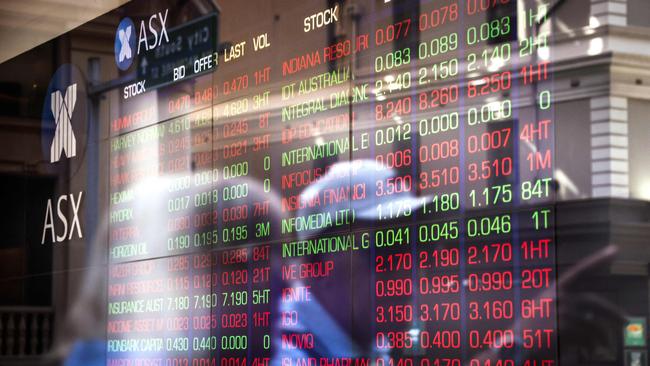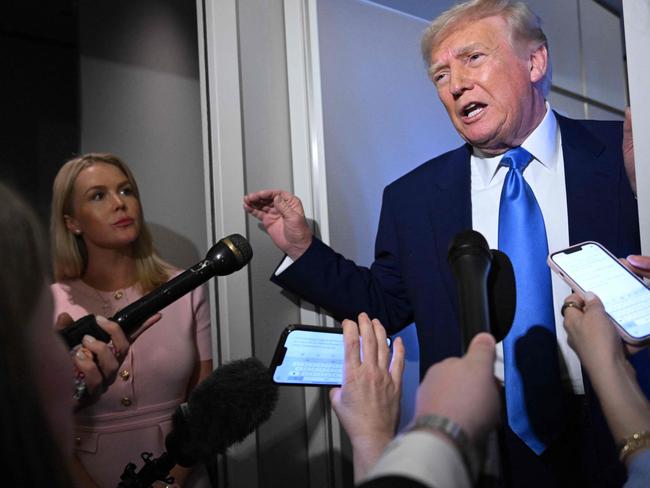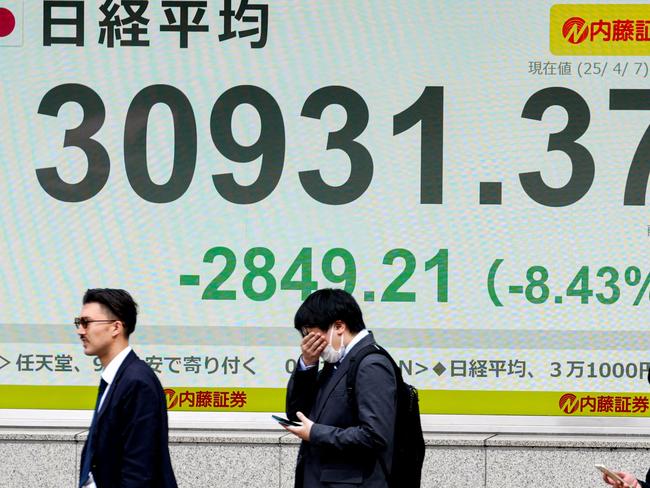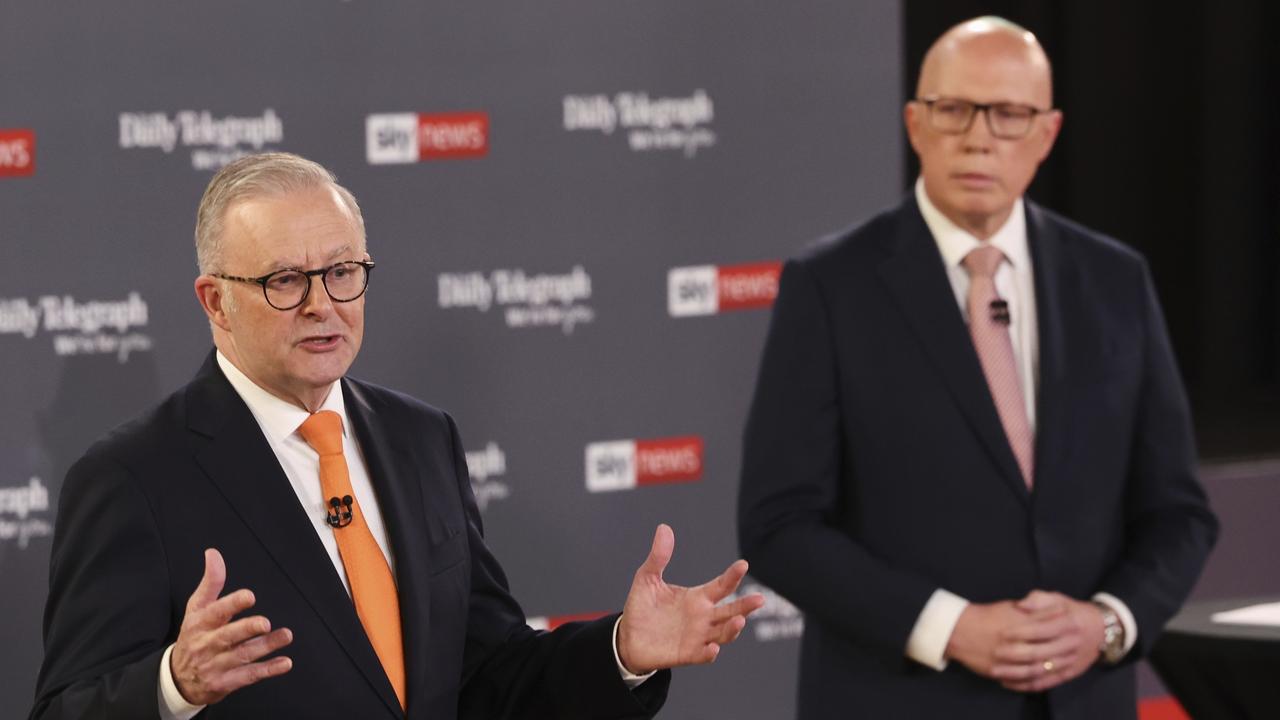Stocks bloodbath: Why investors no longer think Trump can make America great again
As markets crash across the world in response to Trump’s “reciprocal tariffs”, it’s dawned on investors that there aren’t any “wise heads”’ in or around the White House, writes Saul Eslake.

Opinion
Don't miss out on the headlines from Opinion. Followed categories will be added to My News.
The value of stocks listed on markets around the world has dropped by some US$13.8 trillion (or 12.6%) from their peak on the 18th February up to the end of last week.
The bloodbath continues today, as Black Monday fears grip Wall Street, and the ASX suffered a $100bn wipe-out. Falls will almost certainly continue.
For context, the drops to the end of last week are equivalent to about 12% of the International Monetary Fund’s estimate of the value of goods and services which will be produced by the entire world economy this year.
And 60% of that “wealth destruction” has occurred since the announcement by US President Donald Trump on Wednesday afternoon, Washington time, that he would be lifting tariffs on goods imported into the United States to their highest level since 1909. (Those weren’t his exact words, of course – but it was the effect of what he said).
Why is this happening?

In simple terms, it’s because investors around the world – and particularly in the United States, where almost 80% of that US$13.8 billion of “wealth destruction” has occurred over the past five weeks — no longer believe that Donald Trump’s policies will ‘Make America Great Again’, as they had done from early October last year, when they first concluded that Trump was likely to win the November election, and that his agenda of deregulation and tax cuts would more than outweigh whatever negative effects his lifelong determination to impose tariffs might have on the US economy.
Indeed, many investors appeared to have bought the argument, put by some of Trump’s more influential supporters in the business and financial sectors, that Trump’s stated intentions with regard to tariffs were some kind of “negotiating ploy”, and that “wiser heads” around the President would ultimately prevail.

Now, especially after last week’s announcements from the White House Rose Garden, and the revelation of the absurd way in which the “reciprocal tariffs” which were unveiled were derived, it has suddenly dawned on investors that there aren’t any “wise heads” in or around the White House.
American consumers know they are going to be the ones paying the tariffs – not Chinese, Canadian or Mexican exporters.
That’s why American household inflation expectations have shot up, over the past two months, to their highest level in over 40 years – something they didn’t do during the recent bout of inflation. And consumers in other countries know that they’ll be paying for any “retaliatory” tariffs that their own governments impose (as China did on Friday).
More than, that, however, it’s the sheer uncertainty that Trump’s policies, and the chaotic way in which they’re being announced, re-announced and implemented, are causing for both businesses and consumers, in America and around the world, which is causing investors to abandon the optimism they previously had about the outlook for the US economy.

When businesses are highly uncertain – about whether the goods or services they produce, or import or export, are going to be subjected to tariffs, and if so at what level and for how long, or about anything else – their instinctive reaction is to avoid making decisions, in particular about investment and employment, and instead to “hunker down”.
Likewise, consumers, in the face of uncertainty about (in particular) whether they will still have a job in six months’ time, will put off major spending decisions.
And it’s that uncertainty, more than anything else, which is prompting fears that the US economy – which was travelling pretty well when Donald Trump moved back into the White House on January 20 – might now be on the brink of a recession that, to echo former Australian Prime Minister Paul Keating, it absolutely didn’t have to have.
And given that most of the world’s other economies haven’t been travelling as well as the US had been up until very recently, and are (like the US) burdened with much higher debt as a result of the things which governments did in response to the global financial crisis of 17 years ago and the more recent Covid-19 pandemic, it’s more likely that a US recession will be paralleled by recessions or slowdowns in other economies around the world.
It’s easy for Donald Trump and those around him to say what’s happening is merely an “adjustment process”.
Neither he nor they are going to lose their jobs. And what’s a couple of billion dollars to Elon Musk?
What’s perhaps most telling of all is that, traditionally, the US dollar strengthens during periods of heightened economic uncertainty, or episodes of panic in financial markets – as it did during the global financial crisis and the pandemic.
But not this time.
Financial markets don’t see the US dollar, or US Treasury bonds as a “safe haven”, as they once did.
Rather, they see that the United States is the source of the uncertainty and the panic.
And that it’s not going to go away any time soon.
Originally published as Stocks bloodbath: Why investors no longer think Trump can make America great again




